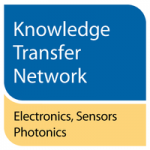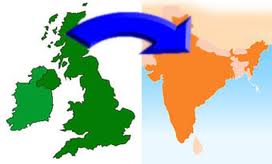In the past months, I have been collaborating with the University of Naples Parthenope, and in particular with pedagogy Professor Maria Luisa Iavarone and PhD candidate Ferdinando Ivano Ambra.
We have been working on a conference paper that covers the recent results of the S.M.A.R.T. questionnaire. A questionnaire developed in Italy to look at different aspects of human behaviour (including eating habits, sleeping patterns, relationships, and use of technologies) in the young population.
The abstract was successfully accepted and presented at the 2nd Conference on Well-being in Education Systems. I have asked Ivano to tell us a little bit about the journey he had.
From the 12th to the 15th of November I was in Locarno (Switzerland) to present the results of the research titled “The impact of sport training on healthy behaviour in a group of 108 adolescents: a pilot study using the S.M.A.R.T. questionnaire” at the “2nd Conference on Well-being in Education Systems”.
The University of Applied Sciences and Arts of Italian Switzerland (SUPSI) organised a very informative conference, giving to all the attenders enough information and materials to follow all three days of presentations.
The aim of the conference was innovation in education and psychology fields. I found of particular interest the work about emotional intelligence and creativity presented by Professor Brandao de Souza and Professor Pasini. I also found very stimulating the symposium of Professor Noto from the University of Padova who discussed the education systems and how it applies to the work-environment in an inclusive way.
The posters session as well offered food for thought, such as the research of Professor Iorio and Professor Ambrosetti on students perception of teachers’ burnout.
During the social event I had the chance to meet the other lecturers part of the scientific panel of the conference: Prof. Castelli, Prof. Marcionetti, Prof. Plata, Dr Ambrosetti and the director of the Center of innovation and Research on Education System (CIRSE) Prof. Egloff.
I am grateful to have had the chance to participate in the conference. It was an occasion of professional growth and personal improvement.
If you want to read the paper submitted, it is now fully available on ResearchGate
If you want to discuss the findings with Ivano or the other members of the project, follow the links below
 |
PhD candidate Ferdinando I. Ambra ivano.ambra@uniparthenope.it |
|
|
Professor Maria L. Iavarone marialuisa.iavarone@uniparthenope.it |
 |
Dr Francesco V. Ferraro fferraro@bournemouth.ac.uk |
Thank you for your attention,
Dr Ferraro
fferraro@bournemouth.ac.uk
www.ferrarotrainer.com
















 REF Code of Practice consultation is open!
REF Code of Practice consultation is open! BU Leads AI-Driven Work Package in EU Horizon SUSHEAS Project
BU Leads AI-Driven Work Package in EU Horizon SUSHEAS Project Evidence Synthesis Centre open at Kathmandu University
Evidence Synthesis Centre open at Kathmandu University Expand Your Impact: Collaboration and Networking Workshops for Researchers
Expand Your Impact: Collaboration and Networking Workshops for Researchers ECR Funding Open Call: Research Culture & Community Grant – Apply now
ECR Funding Open Call: Research Culture & Community Grant – Apply now ECR Funding Open Call: Research Culture & Community Grant – Application Deadline Friday 12 December
ECR Funding Open Call: Research Culture & Community Grant – Application Deadline Friday 12 December MSCA Postdoctoral Fellowships 2025 Call
MSCA Postdoctoral Fellowships 2025 Call ERC Advanced Grant 2025 Webinar
ERC Advanced Grant 2025 Webinar Update on UKRO services
Update on UKRO services European research project exploring use of ‘virtual twins’ to better manage metabolic associated fatty liver disease
European research project exploring use of ‘virtual twins’ to better manage metabolic associated fatty liver disease